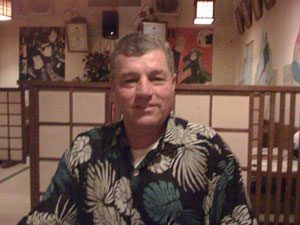
DAV secures benefits retroactive to 1972 for Vietnam veteran who will pay it forward
Nearly half a century passed before William Codick received the benefits he earned in service to his nation. The Marine Corps veteran was never fully evaluated for his health issues stemming from his time in Vietnam before being discharged in 1972. After decades of wondering what, if anything, could be done, he turned to DAV.
Codick volunteered for Vietnam after a friend and fellow Marine, whose wife was expecting their first child, received the orders.
“He had a baby coming, so I went to the commanding officer to see if I could take the orders instead,” said Codick.
Shortly thereafter, he was assigned to a heavy helicopter squadron at Marble Mountain Air Facility in South Vietnam. He volunteered once more, to be a door gunner aboard CH-53 helicopters, in addition to his regular duties.
“You still had to do your normal job, you couldn’t let that slide,” he recalled. “It sometimes made for a long day.”
Codick experienced brutal combat behind the barrel of a .50 caliber machine gun. The days would begin in the early hours of the morning; depending on the mission, cases of ammunition would be loaded on the choppers. Codick said he was exposed to the harmful herbicide Agent Orange to help establish landing zones, the effects of which quickly took hold of his health.
Codick’s muscles weakened, and he began experiencing tingling in his arms and legs. After seeing him stumble in the unit’s hanger, Codick’s executive officer ordered him to be seen by the flight surgeon. He was diagnosed with Guillain-Barré syndrome, a rare disease in which the body’s immune system attacks the nerves.
At 20 years old, Codick was unsure if he would be able to walk in the future.
Although he temporarily lost the use of his limbs, he underwent physical therapy and was honorably discharged from the Marine Corps. He received a few years of compensation, which ended in 1974. It would be decades before he would enter the VA system again. In 2010, under the advice of friends, he gathered his records and walked into the VA Sierra Nevada Health Care System in Reno, Nev., to inquire about his benefits.
According to National Service Officer Mark Donberger, supervisor of the DAV office in Reno, Codick did not complete all of the proper exams when he left service. With the assistance of DAV, he would be wholly evaluated for multiple ailments stemming from his time in Vietnam.
Codick received a favorable rating, but he knew the benefits should be backdated to when he was discharged. The former Marine requested an earlier effective date, which was denied. He appealed the decision and, in 2015, attended a VA hearing, arguing that since he was never thoroughly examined, he was owed additional years of compensation.
The Board of Veterans Appeals backdated the award to 1972, but the VA’s decision didn’t provide eligibility to dependency allowance back to 1972.
In October 2019, Donberger argued that the 69-year-old was entitled to dependency allowance throughout the years.
“He was granted the required rating to be eligible for dependency allowance going back to 1972,” said Donberger. “I reviewed the law with a VA decision review officer, and we agreed he was entitled to the benefit.”
The final decision in Codick’s favor came down last December—he would be getting his dependency allowance retroactive to 1972.
“DAV was my coach,” said Codick. “They know the rules, and they tell you how to win.”
Glenna Smith, a former aide to then-Senator Dean Heller on military and veterans issues, helped move the case along by inquiring about his situation to VA and the Board of Veterans’ Appeals, in Washington D.C.
Filing for VA benefits “is not an easy process,” said Smith, who is now a public affairs officer at the VA Sierra Nevada Health Care System in Reno, Nev. “A lot of veterans want to file their own claims, and I have to tell them it is a highly complex medical and legal application.”
She stressed that having a “reputable organization, like DAV, representing veterans can make all the difference.”
That difference, she added, was apparent with Codick’s claim.
Although he had been fighting for years to receive benefits that are rightly his, Codick wants to pay it forward by purchasing a motorized wheelchair for a local disabled veteran.
“There’s got to be a local veteran who wants to go fishing or hunting, but doesn’t have the mobility,” said Codick. “A motorized wheelchair would mean they’d have that chance again.”
According to the VA, “recreational needs may be taken into consideration” when providing such wheelchairs, but the department does not provide the equipment “solely for recreational purposes.”
In other words, Codick’s donation would center a veteran’s leisure and entertainment, not their medical needs.
Frank Greenwood, commander of DAV Chapter 1 in Reno, is working to identify a local veteran in need.
“This doesn’t happen every day,” said Greenwood. “It goes to show that [Codick] has a caring heart, and he wants to help those in his community.”






